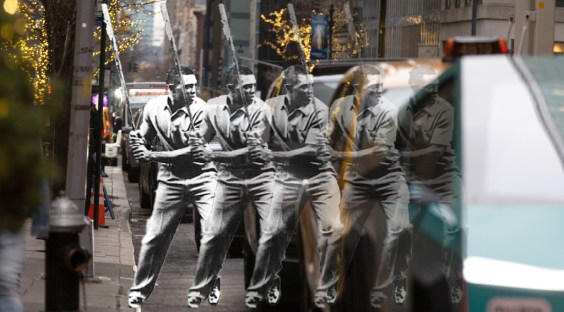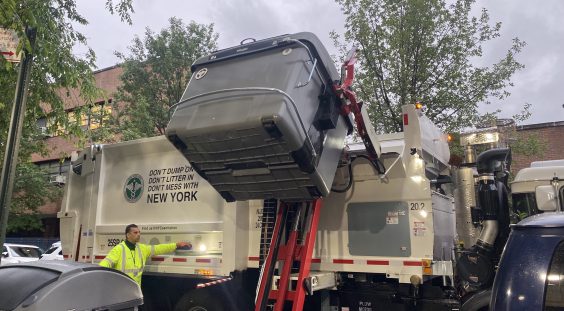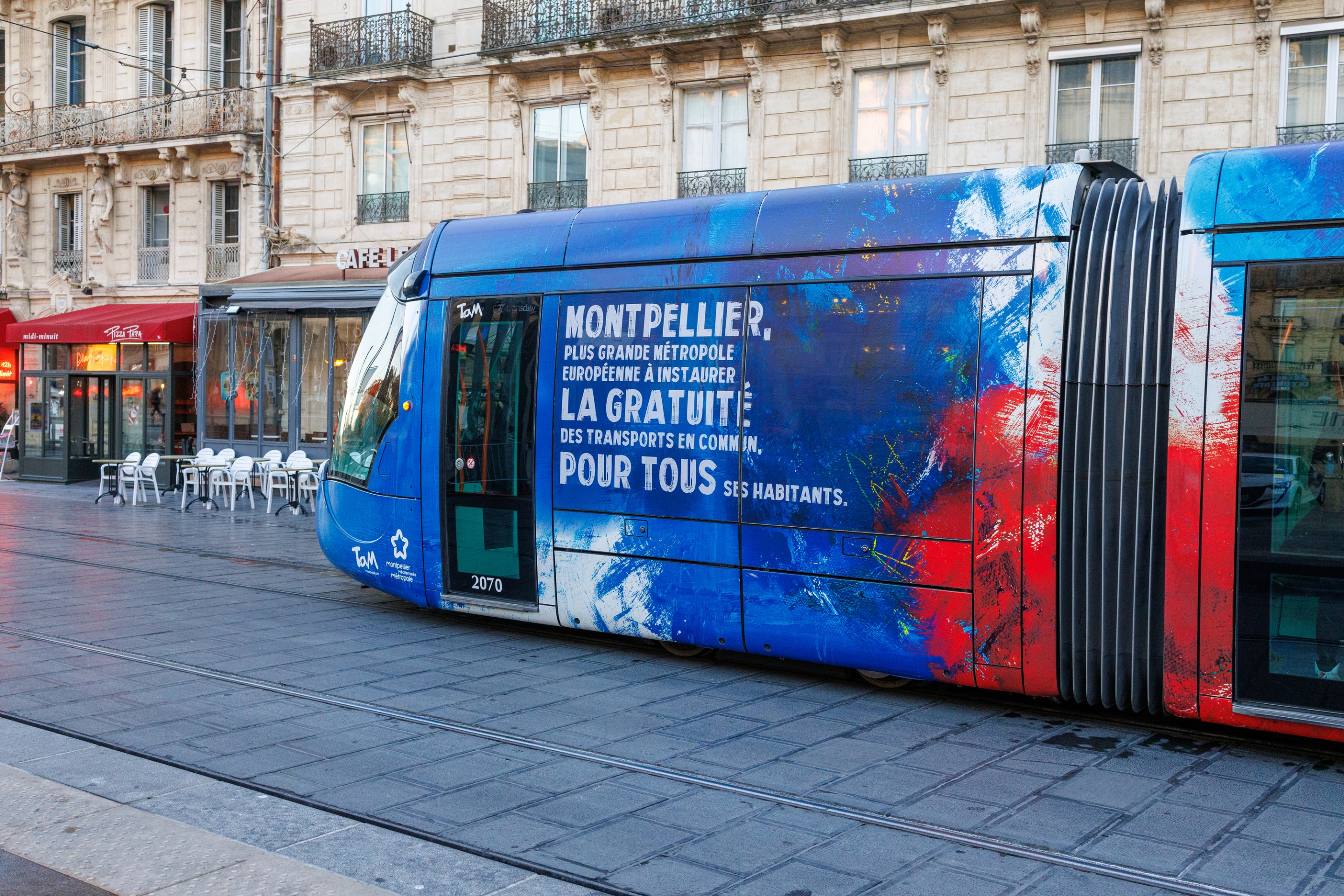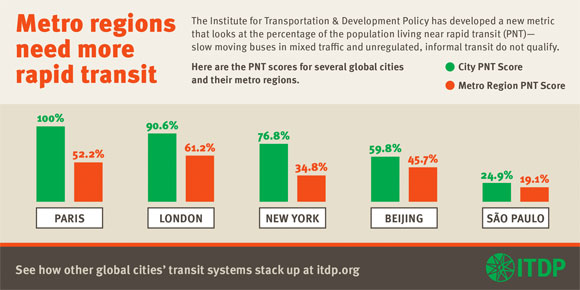
Sprawl isn't just a problem in car-centric America. Even cities with the world's best transit systems are surrounded by suburbs with poor transit access, according to a new report by the Institute for Transportation and Development Policy. As billions of people migrate from rural to metropolitan areas in the next few decades, these growth patterns threaten to maroon people without good access to employment while overwhelming the climate with increased greenhouse gas emissions.
For 26 global cities, ITDP looked at the share of residents with access to frequent, high-capacity rail or bus service within 1 kilometer of their homes, or roughly a 10- to 15-minute walk. Then ITDP looked at the same ratio for the region as a whole. The results suggest that coordinating transit and development will be a major challenge in the fight against global warming.
In Paris, for instance, fully 100 percent of residents have access to good transit. But the city of Paris is home to only 2 million people in a region of 12 million. And looking at the region as a whole, only 50 percent of residents live within walking distance of good transit. That still manages to beat most other regions ITDP examined.
In New York, the highest-ranked American city, 77 percent of residents live within reach of high-quality transit, but region-wide only 35 percent of residents do.
North American cities are particularly "unbalanced," according to ITDP, with suburbs having far worse transit access than the urban core. In the Chicago region as a whole, for example, just 14 percent of residents have access to high-quality transit, compared to 40 percent of urban residents. Globally, other regions do better: Seoul provides good transit near 45 percent of metro area residents, and London 61 percent.
Looking ahead, the problem is that most growth in these cities is happening in the car-centric suburban areas. "The continuing construction of car-oriented development found in metropolitan regions all over the world is a perfect example of this tragedy," ITDP chief Clayton Lane said in a statement. "Rapid transit integration, including rail, bus, cycling, walking, and shared car networks could connect these places sustainably to a wealth of opportunities.”
In order to expand access, regions need to coordinate transit and land use. There are prime opportunities for transit expansion, for instance, in the densely populated areas north of Rio de Janeiro:
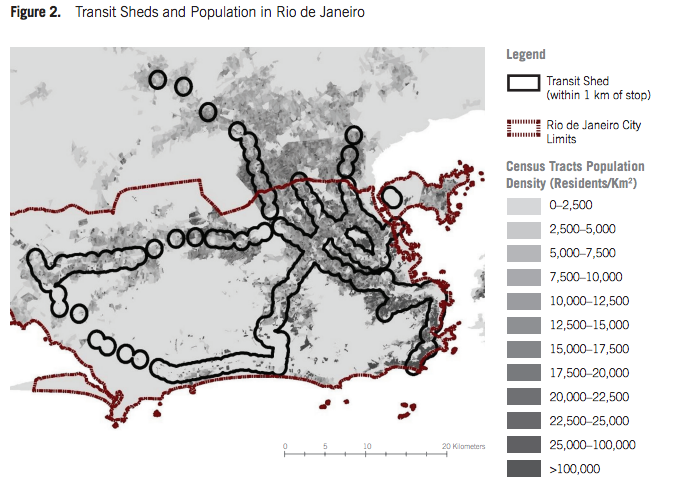
It is critical for cities to provide transit in equitable ways, which is too rare. An ITDP analysis of four Brazilian cities found that lower-income residents have worse transit access than the wealthiest residents in all four. And two cities -- Rio and Belo Horizonte -- have managed to make this disparity greater even as they've expanded transit in recent years.

